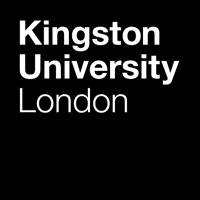fees waived
Aerospace Engineering (Space Technology), BEng (Hons)
Kingston University, United Kingdom
Ranking in UK
Engineering: Aerospace
Aeronautical and Aerospace Engineering
Costs
food & rent S$24.5k / year
Entry requirements
Scholarships
11 - 20 available
21 - 50 available
Unlimited quantity
Unlimited quantity
Unlimited quantity
Unlimited quantity
Limited quantity
Information
Code
Code
Intakes
Website (External)
Programmes
Information
Duration
2029
Kingston University offers accredited aerospace engineering degrees, with both MEng and BEng programmes recognised by the Royal Aeronautical Society, paving the way to chartered engineer status. Students access state-of-the-art facilities, including flight simulators, wind tunnels, rocket labs, 3D printers, and a satellite ground station, while engaging in practical experiences like flight test courses and the Formula Student Competition. The curriculum emphasises employability through industrial visits, placements, and activities that build skills in aerodynamics, propulsion, structures, and materials, alongside group design projects.The MEng includes an additional year for deeper study and optional industrial placement, accelerating paths to professional qualification. Future skills, such as problem-solving and digital competency, are integrated to prepare graduates for a dynamic job market. Career prospects are strong in the UK aerospace sector, with alumni securing roles at companies like Boeing, BAE Systems, and Rolls-Royce. Example modules include Space Vehicle Design and Further Aerodynamics. Assessment combines exams, coursework, labs, and essays to evaluate practical and theoretical knowledge.
Example modules: – Space Vehicle Design – Space Mission Analysis and Design – Further Aerodynamics & Propulsion & Computational Techniques To view the full list of modules, please visit the University course webpage.
A local representative of Kingston University in Singapore is available online to assist you with enquiries about this course.

